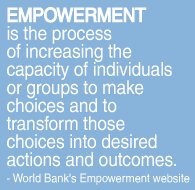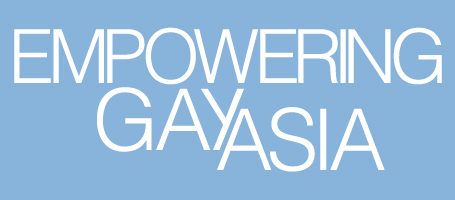I first became a member of fridae.com in 2002, when the website was still in relative infancy. At the time, I was 18 years old, and I had primarily joined fridae to set up a profile to meet other guys, to find partners, and ultimately, a boyfriend. The news and commentary that were published on fridae at the time seemed only incidental to the site's basic utilitarian, sexual nature for me. Many of the articles seemed frivolous, at best, though perhaps this frivolity was exactly what was necessary to inject humour and wry insight into what would otherwise have been my boring and lonesome experience growing up gay in Singapore.
Since then, fridae has meta-morphed into a gargantuan and sprawling online metropolis. The website and its users have become quite self-consciously multicultural, promoting gay and lesbian events that span and cut across continents and cultural lines. It has delivered astute political commentary from gay activist pioneers and writers such as Alex Au, from whom I first learned about the Victorian history of the sodomy laws in ex-British colonies around the world, including Singapore, where I grew up. Currently, fridae is the only online gay website for which I have developed a sense of patriotism and almost religious devotion.
After all, fridae, unlike many other sites like gaydar, gay.com, or manhunt, has an especially deep and not-overtly sexual, political component and premise: Empowering Gay Asia.

It is no secret that many (though not all) Asians may feel sexually marginalised within gay and lesbian circles in "Western" countries, even as they promise us more sexual or political liberties, such as USA, Canada, Britain, and Australia. Within Asia, many gay and lesbian Asian people grapple with our culturally conditioned and nationally specific instances of homophobia and transphobia not often sensitively covered by much international gay and lesbian press, let alone our own countries' mainstream press. Fridae, therefore, fulfils a broadening need for sexual minorities and sexually marginalised individuals within Asia to find our voice for empowerment, as a website that is effectively managed and run by people like us, for people like us.
That, of course, is simply painting broad brushstrokes in my interpretation of the Gay Asian condition, as it were. The premise behind my column "Been Queer. Done That" has been to experiment with a myriad of ways of writing and communicating, encouraging discussion in what has become my community online in this virtual space. By using personal anecdotes, I have hoped to hint at our universal human experiences through highlighting my own particular personal trials and tribulations. Through dialogue and sharing ideas, perhaps a culture of empowerment can be presumed to underlie my writing, or else it ideally emerges as a result. As a relatively new writer for fridae, I am basically following in the footsteps of my predecessors on the website and others in life from whom I have derived inspiration. These are the writers, educators and activists in whom I have held high esteem and admiration. They have paved the way for me to speak my own voice as a baby lotus, product of the muddy waters of my Singaporean upbringing and, for better or for worse, my Americanisation, prior to my eventual location here in Sydney, Australia.
Usually, soon after I am published, I read the comments to my articles with some trepidation, both the criticism and the praise. It is my unfortunate burden as a writer to become too deeply identified with my writing, to unwisely take compliments or insults too seriously either to inflate or deflate my ego, when indeed, as my striving for the goal of empowerment should make clear, the end result should ultimately be to learn from my readers and participate in a dialogue with each other. However, though I often mock myself for my own sensitivity, it is at least a reminder that I am still alive, that my heart remains soft and receptive to all the joy and melancholy of human existence. I am, after all, a pansy.
It is from my experience of open-heartedness and wounded vulnerability that I base my interpretation of empowerment. For me, to seek empowerment is different from simply grasping for power. Many of us want more power, and in our societies we are often taught that we never have enough of it, so we look for more, more money, a better car, a bigger house. Empowerment, on the other hand, is knowing that we are already powerful, deep inside ourselves and in our identities, and becomes altogether a different perspective on viewing the condition of our lives.
Empowerment, therefore, is not just about being hardened against abuse that is directed toward us, but it is also about giving ourselves permission to be soft toward each other; loving, caring, compassionate, kind. Empowerment means knowing to use the power we have responsibly as citizens and immigrants of the world, steering away from violent ends. Empowerment means knowing how to ask for help when we need it, knowing that seeking advice, friendship, love, and camaraderie with people who are like us is not a sign of weakness.
Empowerment means knowing our capacity to offer help to others, and being willing to extend our help when the need arises. Empowerment means being comfortable with wanting to have sex. Empowerment means being comfortable with not wanting to have sex. Empowerment means loving our bodies, no matter how fat, skinny, voluptuous, concave-chested, big-boned, hairy or smooth we are. Empowerment is knowing that our imperfections are remediable first by a change in perspective.
Empowerment means not wanting to hurt others and put them down, no matter how much they may have hurt us. Empowerment means speaking out against abuse we see, and refusing ourselves to abuse those we love, or those we do not know. Empowerment means disallowing our own suffering and hatred to spill over into the lives of our friends, our families, and our communities.
After all, sometimes, when we feel so beaten down by society, it is easy to let our bitterness reign supreme. Empowerment is learning how to take that dejectedness and turn it bittersweet, like dark chocolate- raw and sophisticated.
"You don't know me! You have misunderstood me!" It was always tempting to protest with these exact words when I read through hurtful and hateful comments to my previous articles here on fridae. Instead, I am attempting a far more challenging, far more dangerous, yet ultimately more rewarding approach to your dissent. After all, I do not know you either. I can only glean a fraction of your personalities from your self-pics, or from self-descriptions on your profiles when you leave a comment on my work. All of our judgements are conditioned by these abstract boxes of categories, whether we are "Chinese" or "Indian" or "Caucasian," whether we are "Male" or "Female," whether we are in Asia or in Canada or South Africa, whether we are "Gay" or "Bisexual" or "Lesbian," whether we are "HIV-" or "HIV+" or whether we "Prefer Not To Say." To what extent are our judgements of each other (your's to my writing, mine to your comments) conditioned by these subconscious gut responses to each other's identities, prior to even having had a conversation with one another?
I have deliberately opted to take on this precarious responsibility of writing for online media, in this specific forum which has become increasingly democratised, and which invites more instantaneity. This way, I can write something and be published within a few hours to be read by people around the world, a feat unimaginable just two decades ago. Similarly, the nature of how articles are written and received on fridae invites readers to respond with comments instantly, our brains saturated with our immediate judgements before we have had time to reflect. This often brings out both the best and the worst out of us, both our stunning ability for harsh judgement and also for exaggerated praise.
With our limited knowledge of each other, how can we help empower each other? What has it meant for us to feel this experience of empowerment on fridae? Is it the freedom to be anonymous? The freedom to leave comments on the writing here? The freedom to meet other gays & lesbians? The freedom to send hearts to people who live in 8 hour time zones away from us? The freedom to approach and have sex with Asian men? With White men?
I believe it is ultimately true that no amount of freedom provided by our supposed anonymity online can ever displace our underlying need to be seen and heard as our most authentic selves, completely naked and vulnerable with our fully exposed face-pics. Ultimately, my interpretation of fridae's goal of "Empowering Gay Asia" is that fridae as an online community medium provides a platform in which we can voice our hitherto unspoken, repressed or silenced concerns, thoughts, frustrations, and longings, for sex, for love, for romance, for partnership, for political freedom, for intercultural fantasy and international savvy, and for good underwear. We are all inter-actors in this medium, and it is up to all of us - writers, news editors, readers, horny personals surfers, voyeurs and on-lookers - to bring to fridae our good will and our mindfulness. This is one way that we can contribute to a culture of empowerment for Gay Asia.
I would like to invite your responses to these questions: What does empowerment mean to you? How does fridae contribute to your experience of empowerment? And lastly, how do you realise empowerment in your own life?
Malaysia-born and Singapore-bred Shinen Wong is currently getting settled in Sydney, Australia after moving from the United States, having attended college in Hanover, New Hampshire, and working in San Francisco for a year after. In his fortnightly "Been Queer. Done That" column, Wong will explore gender, sexuality, and queer cultures based on personal anecdotes, sweeping generalisations and his incomprehensible libido.

